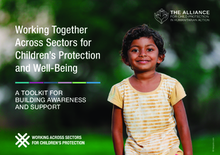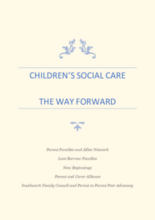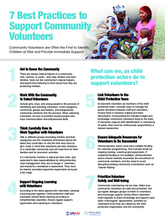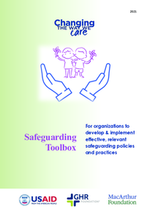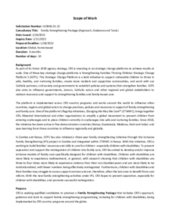Displaying 821 - 830 of 4424
In the BBC interview below, parent activist Taliah Drayak presents key findings from the report: Children’s Social Care: The Way Forward. She describes her family’s own nightmare when social workers removed her two-year-old from her custody.
Collaborating across humanitarian sectors is crucial to protecting children, promoting their well-being, and making the most of available funding. The CPMS Working Group’s “Working Across Sectors” initiative is gathering technical resources to help practitioners from all sectors achieve just that. The new Working Across Sectors Toolkit for Building Awareness and Support in English, Arabic, French and Spanish contains a wealth of ready-to-use materials for communicating the benefits of cross-sectoral collaboration.
This report is based on consultations with parents and allies in England carried out by Parent Families and Allies Network; Love Barrow Families; New Beginnings; Parent and Carer Alliance; and Southwark Family Council and Parent to Parent Peer Advocacy. It sets out ideas on making the care system more supportive, humane and inclusive, and ensuring families’ needs are met early, with advocacy as a core feature. It also argues for immediate changes, led by parents and children with lived experience of social care.
This Lumos working paper examines the relationship between education and institutional care and the fact that many children – especially those who are most vulnerable – can only access education in residential settings, settings which share similar harmful characteristics with institutional care settings.
A poster for Child Protection teams to emphasize the evidence based practices of engaging volunteers that were documented in the research.
The purpose of the risk assessment is primarily to enable your organization to gather a snapshot of safeguarding needs and measures related to the activities being or to be undertaken by your organization.
This toolbox can be used by organizations working with and for vulnerable children and adults, particularly those at risk of separation or living in alternative care. It can support those in the organization who are responsible for:
• Developing and implementing safeguarding policy and procedures
• Assessing safeguarding risk
• Safeguarding in program development and implementation
Solicitation Number: US3965.01.22
Consultancy Title: Family Strengthening Package (Approach, Guidance and Tools)
Date Issued: 1/18/2022
* Applications will be recieved on a rolling basis until the position is filled
This video by the Alliance for for Child Protection in Humanitarian Action details the main reasons for investing in child protection prevention programming in humanitarian crises.

